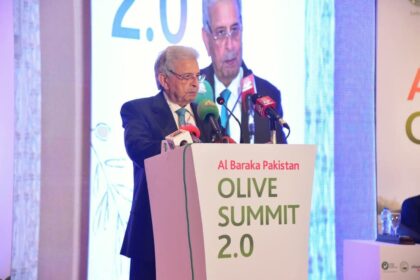The Society for the Protection of the Rights of the Child held a stakeholder dialogue in Karachi to tackle the growing threat of tobacco and emerging nicotine products to Pakistani children and adolescents. Speakers warned that new items such as e-cigarettes, vapes, nicotine pouches and heated tobacco devices are increasingly available and marketed as safer alternatives while being deliberately aimed at young people, fuelling concerns about youth vaping across the country.
Syed Shariq Jamal, Member Sindh Assembly, said the government must protect children from harmful and addictive substances and described emerging nicotine products as silent killers being pushed into the market without oversight. He urged that legislation evolve to meet industry tactics, calling for comprehensive laws on the production, distribution, marketing and sale of all nicotine and tobacco products and pressing all political parties to work together to secure a tobacco free future for Pakistan’s youth. He added that the Sindh Assembly will explore measures to regulate new nicotine products, close loopholes and strengthen penalties for violations related to underage access.
Jamshed Alam Memon, Special Secretary Health representing the Sindh health department, reminded participants that tobacco use remains among Pakistan’s most serious public health challenges, with roughly 166,000 deaths each year attributed to tobacco related diseases. He stressed that youth are particularly vulnerable due to aggressive industry marketing and misconceptions about vapes and nicotine pouches, and he reaffirmed the provincial government’s commitment to stronger laws, effective enforcement, taxation, public awareness and vigilance against misleading promotions to curb youth vaping.
Prof Dr Farah Iqbal, Chairperson of the Department of Psychology at the University of Karachi, addressed the harmful myth that tobacco relieves depression or other mental health problems. She explained that nicotine undermines mood over time, impairs brain function and creates strong psychological dependence, worsening emotional challenges and increasing long term risks of depression, anxiety, stress and attention deficit hyperactivity disorder.
Dr Khalil Ahmad Dogar, Program Manager at SPARC, highlighted the rapid expansion of new tobacco and nicotine products in Pakistan and the near complete absence of regulation that allows the industry to introduce products without disclosure, health warnings or compliance checks. He emphasised the urgent need for a regulatory framework that covers standardized packaging, taxation, bans on point of sale display, ingredient disclosure, licensing rules and restrictions on youth access and online sales to protect children from early nicotine addiction.
The dialogue brought together Sindh government representatives, policymakers, public health professionals, legal experts, journalists, academics, civil society organisations and youth groups who underlined the need for coordinated action across health, education and law enforcement. Participants called for immediate legislative and enforcement steps to address youth vaping and other nicotine threats while expanding public education to correct misconceptions and safeguard the next generation.











